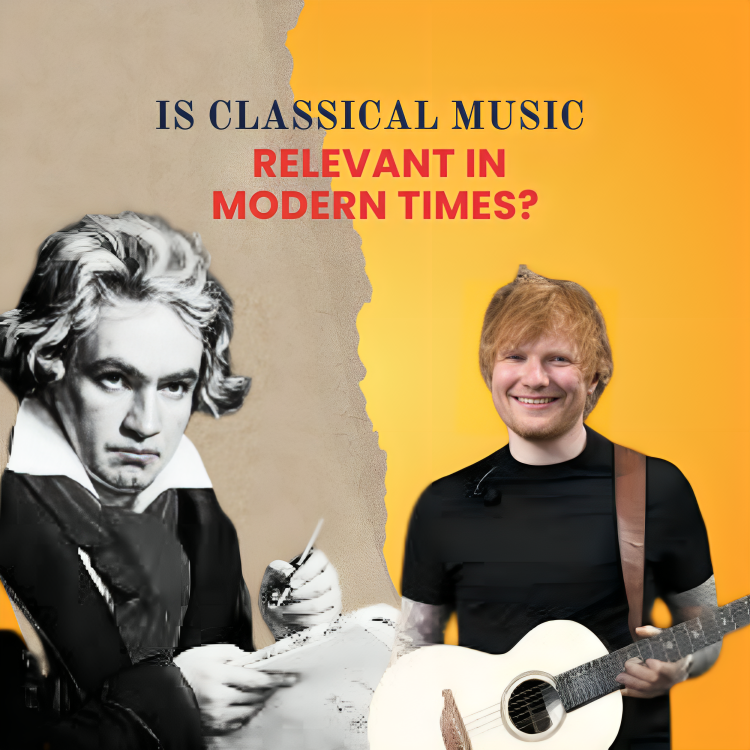
Table of Contents
Modern music genres are continuously evolving and catering to the latest trends. But classical music remains an influential pillar of music history and continues to offer unbeatable value in wonderful ways.
This blog will explore classical music's superpower and how it still dominates other music styles.
1. Rich legacy
Classical music is a genre that has existed since the medieval period.
Its compositions have left an excellent mark on the music and the wide culture of dance, art, and cinema.
But have you ever considered why classical music stays unbeatable while other music styles come and go?
The simple answer is in the depth and complexity of the classical music.
It mostly tells stories without words and delivers a beautiful exploration of human feelings and events all through melody and harmony.
Though it is a mix of rising triumphs of a symphony order, classical music captures human emotions excellently while making it relevant today.
To make your classical music journey more intriguing, join the expert professionals of the Spardha School of Music now!

2. Integration and influence in the modern age
You may be surprised to know that classical music greatly influences modern genres.
The structures and styles of classical compositions inspire many rock, pop, and film beats.
Classical music is felt in the highly sweeping orchestras of famous films like Star Wars or The Lord of the Rings.
These soundtracks evoke the same intensity as well as emotion that showed the work of Beethoven and Tchaikovsky.
3. Enhancing Cognitive Abilities
Besides its cultural impact, classical music can be scientifically proven to have several cognitive benefits.
Some studies show that just listening to classical music may develop concentration and memory and can even help reduce stress.
That’s why many people still listen to it while studying or working.
One example is the so-called ‘Mozart Effect,’ which implies that listening to Mozart's compositions can improve intellectual performance, especially in spatial reasoning tasks.
In a world full of distractions, classical music today provides an environment for focused studying.
No wonder many people find peace in the music pieces of famous composers while they work!
4. A Tool for Emotional Healing
In today’s time, mental health has become one of the most critical issues.
Music therapy with classical music boosts emotional healing.
With its slow tempos and calming rhythms, classical music reduces anxiety, lowers blood pressure, and provides ease and comfort to people in emotional turmoil.
The therapeutic value of classical music makes it a relevant remedy for stress, mental well-being, and overall emotional balance challenges.
5. Keeping the Tradition Alive
Classical music may not be popular on the charts today, but that doesn’t mean it’s become an outdated art form.
Professional musicians and casual listeners alike still enjoy classical music through digital media in orchestral halls or within academic settings.
The digital world has made it easier to access this music than ever before.
Today, streaming services provide millions of classical tracks at your fingertips.
Moreover, online music lessons allow anyone, regardless of age, to learn about and appreciate this genre from home.
But, do you know? Classical music never stops developing.
Current composers mix classics with modern technology and develop new music pieces that can touch the souls of modern people and honor the richness of classical elements.
6. Conclusion
So, classical music continues to influence modern music, helping our brains function better. It is also supposed to have the potential to promote emotional healing.
As we continue trying to look deeper into things with more insight and feelings, probably in art, the impact of classical music would be felt even more.
So, add some classical music to your playlist the next time you listen.
Who knows?
The music from a few centuries ago still speaks to you in a way that modern music never can.
Join an engaging world of classical music at the Spardha School of Music Now!

